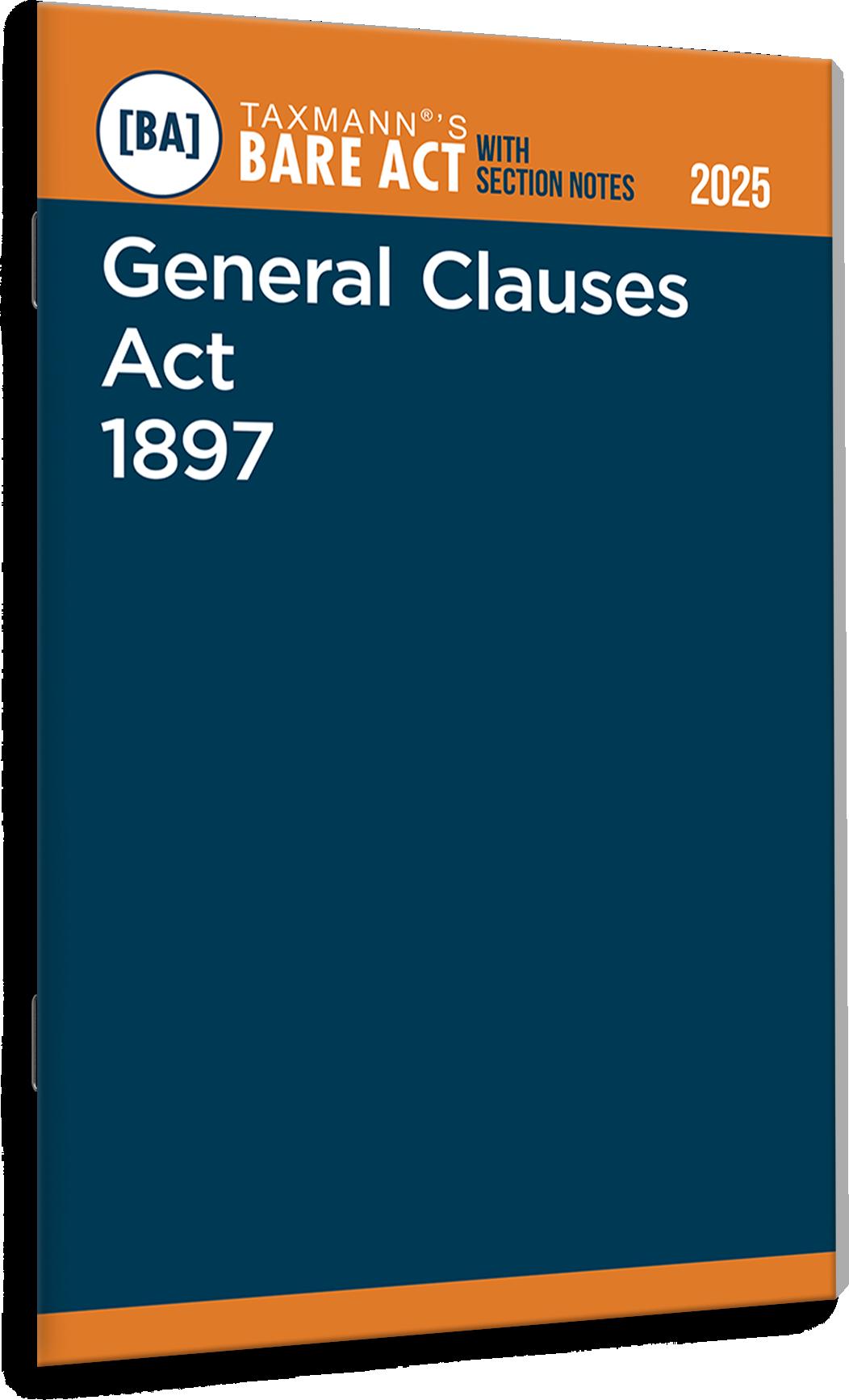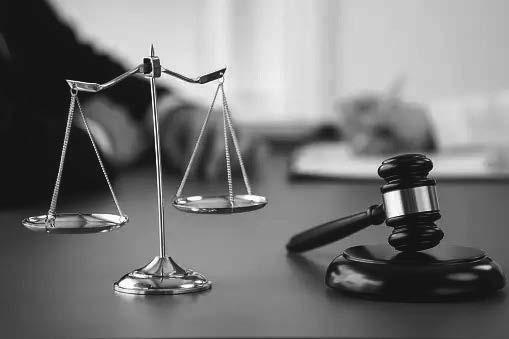© Taxmann Price : ` 95
Published by :
Taxmann Publications (P.) Ltd.
Sales & Marketing : 59/32, New Rohtak Road, New Delhi-110 005 India
Phone : +91-11-45562222
Website : www.taxmann.com
E-mail : sales@taxmann.com
Regd. Office :
21/35, West Punjabi Bagh, New Delhi-110 026 India
Printed at :
Tan Prints (India) Pvt. Ltd.
44 Km. Mile Stone, National Highway, Rohtak Road Village Rohad, Distt. Jhajjar (Haryana) India
E-mail : sales@tanprints.com
Disclaimer
Every effort has been made to avoid errors or omissions in this publication. In spite of this, errors may creep in. Any mistake, error or discrepancy noted may be brought to our notice which shall be taken care of in the next edition. It is notified that neither the publisher nor the author or seller will be responsible for any damage or loss of action to any one, of any kind, in any manner, therefrom. It is suggested that to avoid any doubt the reader should cross-check all the facts, law and contents of the publication with original Government publication or notifications.
No part of this book may be reproduced or copied in any form or by any means [graphic, electronic or mechanical, including photocopying, recording, taping, or information retrieval systems] or reproduced on any disc, tape, perforated media or other information storage device, etc., without the written permission of the publishers. Breach of this condition is liable for legal action. For binding mistake, misprints or for missing pages, etc., the publisher’s liability is limited to replacement within seven days of purchase by similar edition. All expenses in this connection are to be borne by the purchaser. All disputes are subject to Delhi jurisdiction only.
GENERAL CLAUSES ACT, 1897
PRELIMINARY
1. Short title 1
2. [Repealed by the Repealing and Amending Act, 1903] 1 GENERAL DEFINITIONS
3. De nitions 1
4. Application of foregoing de nitions to previous enactments 11
4A. Application of certain de nitions to Indian laws 12
GENERAL RULES OF CONSTRUCTION
5. Coming into operation of enactments 12
5A. [Omitted by the India (Adaptation of Existing Indian Laws) Order, 1947] 13
6. Effect of repeal 13
6A. Repeal of Act making textual amendment in Act or Regulation 15
7. Revival of repealed enactments 15
8. Construction of references to repealed enactments 15
9. Commencement and termination of time 16
10. Computation of time 17
11. Measurement of distances 17
12. Duty to be taken pro rata in enactments 17
13. Gender and number 17
13A. [Omitted by the Adaptation of Laws Order, 1950, w.e.f. 26-1-1950] 18
POWERS AND FUNCTIONARIES
14. Powers conferred to be exercisable from time to time 18
15. Power to appoint to include power to appoint ex of cio 18
16. Power to appoint to include power to suspend or dismiss 18
17. Substitution of functionaries 18
18. Successors 19
19. Of cial chiefs and subordinates 19
PROVISIONS AS TO ORDERS, RULES, ETC., MADE UNDER ENACTMENTS
20. Construction of Orders, etc., issued under enactments 19
21. Power to issue, to include power to add to, amend, vary or rescind noti cations, orders, rules or bye-laws 20
22. Making of rules or bye-laws and issuing of orders between passing and commencement of enactment 21
23. Provisions applicable to making of rules or bye-laws after previous publication 21
24. Continuation of orders, etc. issued, under enactments repealed and re-enacted 22
MISCELLANEOUS
25. Recovery of nes 22
26. Provision as to offences punishable under two or more enactments 22
27. Meaning of service by post 23
28. Citation of enactments 23
29. Saving for previous enactments, rules and bye-laws 23
30. Application of Act to Ordinances 24
30A. [Omitted by the (Adaptation of Indian Laws) Order, 1937] 24
31. [Omitted by the (Adaptation of Indian Laws) Order, 1937] 24
SCHEDULE : [Repealed by the Repealing and Amending Act, 1903] 24 SUBJECT INDEX 25
General Clauses Act, 1897 1
[10 OF 1897]2
An Act to consolidate and extend the General Clauses Act, 1868 and 1887
WHEREAS it is expedient to consolidate and extend the General Clauses Acts, 1868 (1 of 1868) and 1887 (1 of 1887); it is hereby enacted as follows:—
PRELIMINARY
Short title.
1. (1) This Act may be called the General Clauses Act, 1897; 3[***]. (2) 4[***]
Repeal.
2. [Repealed by the Repealing and Amending Act, 1903.]
GENERAL DEFINITIONS
5[Definitions.
3. In this Act, and in all Central Acts and Regulations made after the commencement of this Act, unless there is anything repugnant in the subject or context,— (1) “abet”, with its grammatical variations and cognate expressions, shall have the same meaning as in the Indian Penal Code (45 of 1860);
1. This Act has been declared to be in force in the Santhal Parganas by the Santhal Parganas Settlement Regulation, 1872; in Panth Piploda by the Panth Piploda Laws Regulation, 1929; in Khondmals District by the Khondmals Laws Regulation, 1936; and in the Angul District by the Angul Laws Regulation, 1936.
The Act has been partially extended to Berar by the Berar Laws Act, 1941 and to the new Provinces and Merged State by the Merged State (Laws) Act, 1949.
The Act has been extended to— Goa, Daman and Diu with modifications by the Goa, Daman and Diu (Laws) Regulation, 1962, w.e.f. 6-12-1962, Dadra and Nagar Haveli by Regulation 6 of 1963, Pondicherry by Regulation 7 of 1963 and Laccadive, Minicoy and Amindivi Islands by Regulation 8 of 1965. Extended as whole to the Union territory of Jammu and Kashmir and Union territory of Ladakh by the Jammu and Kashmir Reorganisation Act, 2019, w.e.f. 31-10-2019.
2. Dated 11-3-1897.
3. Word “and” omitted by the Repealing and Amending Act, 1914.
4. Omitted, ibid
5. Substituted by the Adaptation of Laws Order, 1950, w.e.f. 26-1-1950.
3
(2) “act”, used with reference to an offence or a civil wrong, shall include a series of acts, and words which refer to acts done extend also to illegal omissions;
(3) “affidavit” shall include affirmation and declaration in the case of persons by law allowed to affirm or declare instead of swearing;
(4) “barrister” shall mean a barrister of England or Ireland, or a member of the Faculty of Advocates in Scotland;
(5) “British India” shall mean, as respects the period before the commencement of Part III of Government of India Act, 1935, all territories and places within His Majesty’s dominions which were for the time being governed by His Majesty through the Governor-General of India or through any Governor or Officer subordinate to the Governor-General of India, and as respects any period after that date and before the date of the establishment of the Dominion of India means all territories for the time being comprised within the Governors’ provinces and the Chief Commissioners’ provinces, except that a reference to British India in an Indian law passed or made before the commencement of Part III of the Government of India Act, 1935, shall not include a reference to Berar;
(6) “British possession” shall mean any part of Her Majesty’s dominions exclusive of the United Kingdom, and where parts of those dominions are under both a Central and a Local Legislature, all parts under the Central Legislature shall, for the purposes of this definition, be deemed to be one British possession;
(7) “Central Act” shall means an Act of Parliament, and shall include—
(a) an Act of the Dominion Legislature or of the Indian Legislature passed before the commencement of the Constitution, and (b) an Act made before such commencement by the Governor-General in Council or the Governor-General, acting in a legislative capacity;
6[(8) “Central Government” shall,—
(a) in relation to anything done before the commencement of the Constitution, mean the Governor-General or the Governor-General in Council, as the case may be; and shall include,—
(i) in relation to functions entrusted under sub-section (1) of section 124 of the Government of India Act, 1935, to the Government of a Province, the provincial Government acting within the scope of the authority given to it under that sub-section; and
(ii) in relation to the administration of a Chief Commissioner’s Province, the Chief Commissioner acting within the scope of the authority given to him under sub-section (3) of section 94 of the said Act; and
6. Substituted by the Adaptation of Laws (Amendment) Order, 1950, w.r.e.f. 26-1-1950.
(b) in relation to anything done or to be done after the commencement of the Constitution, mean the President; and shall include,—
(i) in relation to functions entrusted under clause (1) of article 258 of the Constitution, to the Government of a State, the State Government acting within the scope of the authority given to it under that clause; 7[***]
(ii) in relation to the administration of a Part C State 8[before the commencement of the Constitution (Seventh Amendment) Act, 1956], the Chief Commissioner or the Lieutenant-Governor or the Government of a neighbouring State or other authority acting within the scope of the authority given to him or it under article 239 or article 243 of the Constitution, as the case may be;] 8[and]
8[(iii) in relation to the administration of a Union Territory, the administrator thereof acting within the scope of the authority given to him under article 239 of the Constitution;]
(9) “Chapter” shall mean a Chapter of the Act or regulation in which the word occurs;
(10) “Chief Controlling Revenue Authority” or “Chief Revenue Authority” shall mean—
(a) in a State where there is a Board of Revenue, that Board;
(b) in a State where there is a Revenue Commissioner, that Commissioner;
(c) in Punjab, the Financial Commissioner; and
(d) elsewhere, such authority as, in relation to matters enumerated in List I in the Seventh Schedule to the Constitution, the Central Government, and in relation to other matters, the State Government, may by notification in the Official Gazette, appoint;
(11) “Collector” shall mean, in a Presidency-town, the Collector of Calcutta, Madras or Bombay, as the case may be, and elsewhere the chief officer-in-charge of the revenue-administration of a district;
(12) “Colony”—
(a) in any Central Act passed after the commencement of Part III of the Government of India Act, 1935, shall mean any part of His Majesty’s Dominions exclusive of the British Islands, the Dominions of India and Pakistan (and before the establishment of those Dominions, British India), any Dominions as defined in the Statute of Westminster, 1931, any Province or State forming part of any of the said Dominions, and British Burma; and
(b) in any Central Act passed before the commencement of Part III of the said Act, mean any part of His Majesty’s dominions exclusive of the British Islands and of British India,
7. Word “and” omitted by the Adaptation of Laws (No. 1) Order, 1956, w.e.f. 1-11-1956.
8. Inserted, ibid
and in either case where parts of those dominions are under both a Central and Local Legislature, all parts under the Central Legislature shall, for the purposes of this definition, be deemed to be one colony.
(13) “commencement” used with reference to an Act or Regulation, shall mean the day on which the Act or Regulation comes into force;
(14) “Commissioner” shall mean the chief officer-in-charge of the revenue administration of a division;
(15) “Constitution” shall mean the Constitution of India;
(16) “Consular officer” shall include consul-general, consul, vice-consul, consular agent, pro-consul and any person for the time being authorised to perform the duties of consul-general, consul, vice-consul or consular agent;
(17) “District Judge” shall mean the Judge of a principal Civil Court of original jurisdiction, but shall not include a High Court in the exercise of its ordinary or extraordinary original civil jurisdiction;
(18) “document” shall include any matter written, expressed or described upon any substance by means of letters, figures or marks, or by more than one of those means which is intended to be used, or which may be used, for the purpose of recording that matter;
(19) “enactment” shall include a regulation (as hereinafter defined) and any Regulation of the Bengal, Madras or Bombay Code, and shall also include any provision contained in any Act or in any such Regulation as aforesaid;
(20) “father”, in the case of any one whose personal law permits adoption, shall include an adoptive father;
(21) “financial year” shall mean the year commencing on the first day of April;
(22) a thing shall be deemed to be done in “good faith” where it is in fact done honestly, whether it is done negligently or not;
(23) “Government” or “the Government” shall include both the Central Government and any State Government;
(24) “Government securities” shall mean securities of the Central Government or of any State Government, but in any Act or regulation made before the commencement of the Constitution shall not include securities of the Government of any Part B State;
(25) “High Court”, used with reference to civil proceedings, shall mean the highest civil court of appeal (not including the Supreme Court) in the part of India in which the Act or regulation containing the expression operates;
(26) “immovable property” shall include land, benefits to arise out of land, and things attached to the earth, or permanently fastened to anything attached to the earth;
(27) “imprisonment” shall mean imprisonment of either description as defined in the Indian Penal Code (45 of 1860); S. 3






